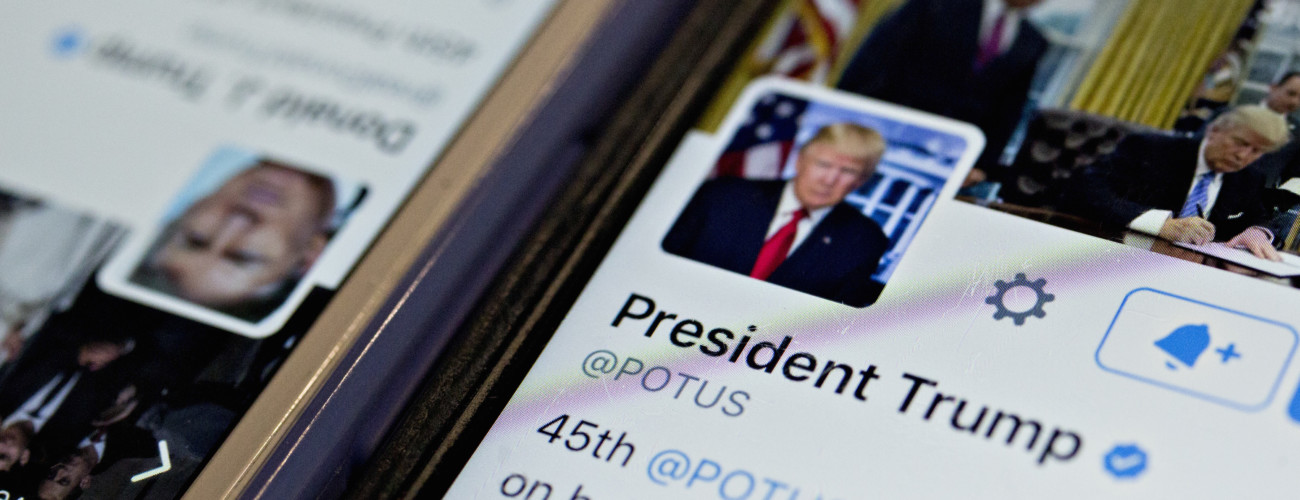Sign up for The Media Today, CJR’s daily newsletter.
On May 28, three days after George Floyd was killed in Minneapolis, MSNBC anchor Ayman Mohyeldin spoke with New York Times opinion writer Charlie Warzel about his column, “What Would Happen if Twitter Banned President Trump.”
Both men downplayed the implicit threats in Trump’s tweets. Instead, they focused on his medium. Warzel, when asked about an executive order from Trump that aims to limit legal protections for social media companies, called it “a piece of paper to wave around at people,” “grandstanding,” and “almost a stand-in for really digging in and doing something big and meaningful.”
The next day, Trump referred to protestors as “THUGS,” and threatened them with the phrase, “when the looting starts, the shooting starts.” Twitter responded by masking the tweet with a warning that the post “glorified violence.” Later, on the show she co-anchors, Stephanie Ruhle described these events as a “Twitter feud.”
“Peter Alexander is at the White House with the latest on this back-and-forth,” she said.
“Peter, when we are facing multiple crises impacting our lives, our livelihoods, and our democracy, can you please explain the newest dog toy that the president is tossing out for us to chase?”
Alexander has had serious run-ins with the president. He clearly did not consider the story a “dog toy.” He gave a rundown of the Twitter warning label and went on to explain the history of the phrase in the tweet. “When the looting starts, the shooting starts,” was spoken by Walter Headley, a racist Miami police chief, in 1967, at the height of the civil rights protests. “We don’t mind being accused of police brutality,” Headley had added. “They haven’t seen anything yet.”
Ruhle failed to pick up the thread, and pushed the Twitter angle further. She spoke to Kara Swisher, a tech journalist for the Times. “Okay, Kara, are we really going to fall for this?” Ruhle said. “This entirely predictable tweet from the president, the thug tweet—isn’t this just to sow discord and to distract from the fact that there are more than one hundred thousand dead, the infection rate is not decreasing, and more than forty million people are on unemployment?”
Swisher agreed. “Yeah, I think distraction is part of his game… it’s a lot of game-playing when this is a very serious situation in Minnesota and across the country, and of course around coronavirus.”
On Monday night, in a Bible-waving press conference staged to include the sound of flash bangs exploding nearby, Trump announced his intention to deploy the military. “If a city or a state refuses to take the actions that are necessary to defend the life and property of their residents,” he said, “then I will deploy the United States military and quickly solve the problem for them”–all but calling for peaceful protestors to be shot in the streets amid the chaos of a raging pandemic, economic calamity, and massive civil unrest.
If a person is waving a loaded gun at you, the immediately newsworthy thing about it is the gun. But MSNBC insists on analyzing his mental state, before he’s been disarmed.
This is the story: an administration that is deliberately fomenting violence and attacking citizens in the streets; a president who publicly states that the police may arrest or even shoot anyone accused of “looting.”
Cable news hosts, even now, continue a damaging tendency to treat Trump as an entertainer, a “reality-show star,” someone who can be laughed at and dismissed with a bad review in TV Guide.
That approach has failed. It’s long past time to take this president seriously.
Has America ever needed a media defender more than now? Help us by joining CJR today.



